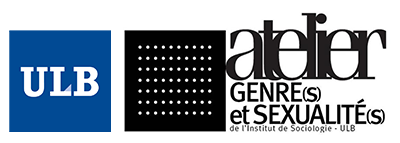Dans la même rubrique
- AGS
- FR
- Le Centre
- Archives de l'Atelier
- 2014
-
Partager cette page
The Politics of LGBT Rights in Israël: Between (Homo) Normativity and (Homo) Nationalism and Queer Politics
10 février

Aeyal Gross
(Tel Aviv University)
Room Henri Janne, Institut de Sociologie (15th floor), Building S
Avenue Jeanne, 44, 1050 Bruxelles
Abstract
This paper examines the politics of LGBT rights in Israel, employing critical analysis of the terms "homonormativity" and "homonationalism": homonormativity has been described as a neoliberal sexual politics, which does not contest the dominant heteronormative institutions and is anchored in domesticity and consumption; homonationalism has been described as national homonormativity, in the framework of which domesticated homosexuals provide ammunition to nationalism.
The discussion of homonationalism points to a process in which the homosexual changes from someone perceived as a threat to the state and its security, to someone who is considered embedded within the state and who distinguishes it, by virtue of the tolerance shown toward him, from other countries. Homonormativity and homonationalism are preconditions for "pinkwashing" — the use of LGBT rights for propaganda purposes. The paper points to the need for non-reductive conceptions of the connections between homonationalism, homonormativity and pinkwashing, as also to the contradictions within the idea of homonormativity itself between domesticity and consumption.
The murderous attack on the gay youth group in Tel Aviv was a turning point in the politics of LGBT rights. The responses to it marked the rise of the new homonationalism, but also the strengthening of critiques of it in a way that created divisions among activists. The Article points to the "deal" that was contrived in the shadow of the attack between the gay establishment and the national establishment, and to the crisis of queer politics. In response to the rise of homonormativity and homonationalism, there has been a strengthening of the politics of identity of groups excluded from it, and queer politics as a politics that challenges essentialist notions of identity is in crisis. Sometimes, the queer idea turns into just another identity ("q") in the alphabet soup, at the expense of its critical potential and effectiveness.
I also address the judgment of the Israeli Supreme Court in the Jerusalem Open House case which is a turning point, both in the context of the recognition of equality for the gay community, and for the way in which the Supreme Court adopted the discourse concerning LGBT rights as the markers of Israel as a liberal democracy, distinguishing it from other countries.
Bio-bibliography
Aeyal Gross teaches International Law and Constitutional Law at Tel Aviv University. He also teaches as Visiting Reader at the School of Oriental and African Studies (SOAS) in the University of London. He served as a research fellow at the Institute of Advanced Legal Studies at the University of London, as a Visiting Fellow at the Stellenbosch Institute for Advanced Studies in South Africa, and as a Joseph Flom Global Health and Human Rights Fellow at Harvard Law School. Additionally, he taught in Columbia University, in the University of Toronto, and in the European University Institute.
Aeyal Gross serves as a member of the Board of the Association for Civil Rights in Israel, is a founding member of TAU’s LGBT & Queer Studies Forum, and contributes regularly to the Israeli daily Ha’aretz. He is the author of numerous articles on human rights and queer politics in Israël, and the co-editor, with Colleen Flood, of The Right To Health At The Public/Private Divide: A Global Comparative Study (Cambridge University Press, forthcoming 2014).
